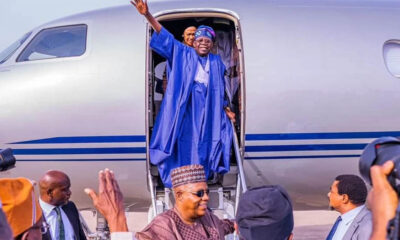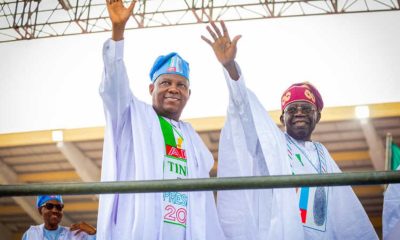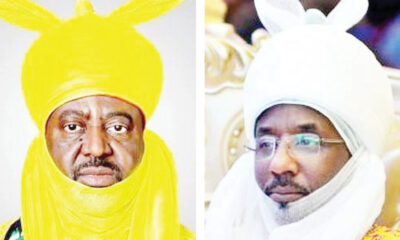Opinion
Does it still make sense to trust Tinubu? by Azu Ishiekwene
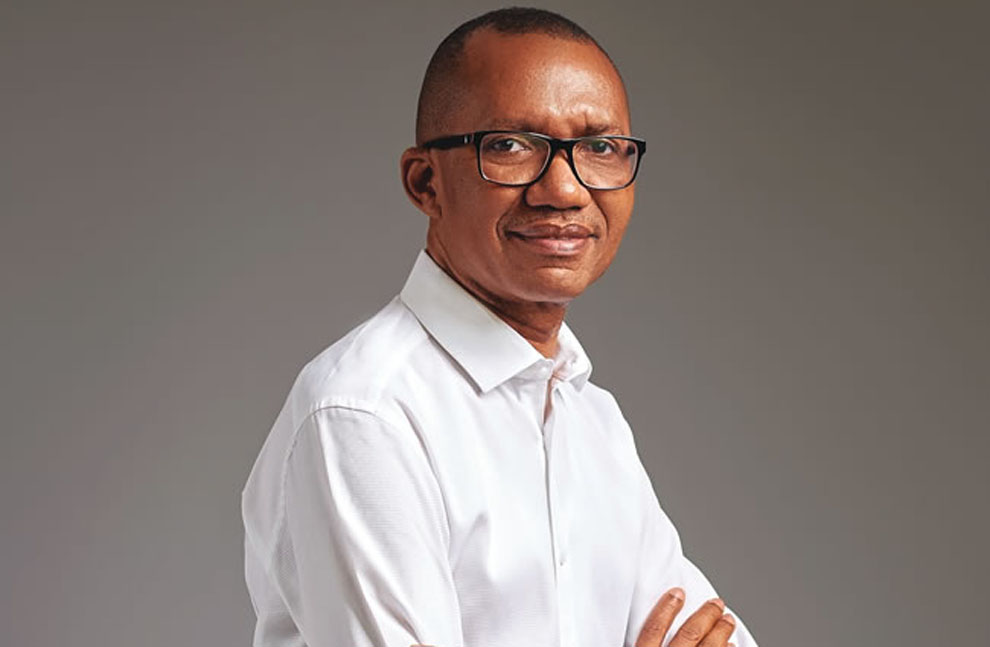
Does it still make sense to trust Tinubu? By Azu Ishiekwene
This was tough to write. My heart resisted it, but I yielded to my head. The petrol in my car, a 2.0-litre 2012 Tokunbo Camry, was at half-tank the day before writing.
When pump prices went from 195/litre to 617/litre between May and June 2023, I parked my Jeep and, despite being occasionally mistaken for an Uber driver, opted for the saloon, which, as of the third fuel price increase by September this year, cost about 65k to fill up.
After petrol pump price went up again by about 15 percent last week, it would now cost about 80k to fill up the saloon, depending on where you bought petrol from and how badly the pump was rigged.
The changes in petrol price and energy costs have affected everything else, from the price of fish to milk and the cost of bread and grains. Essential medicines are a different thing altogether. Life was hard. But it’s been a nightmare for millions more since President Bola Ahmed Tinubu’s government was inaugurated.
Generation crisis
In July, The Financial Times said the hardship under Tinubu has triggered “the worst cost of living crisis in a generation.” The newspaper gave the president credit for tackling two of the most malignant economic problems in decades – the petrol subsidy and fixed exchange rate – but said the shock therapy was so disjointed that calling it “Tinubunomics” would be a joke.
But Nigerians hardly need a foreign newspaper to render their misery in torrid colours. They know this was not the life promised. Tinubu pledged to prioritise security and jobs, tackle the mounting debt, and improve infrastructure when he took office. He came with a pro-business credential and a track record of success in Lagos that was difficult to ignore.
In the last year, however, with millions impoverished by the government’s economic policies and two major nationwide protests against hunger and bad governance, Tinubu’s reputation has taken such a severe beating that promises of light at the end of the tunnel have been brushed aside.
Turn of excuses?
His government has explained that the rot was worse than expected; that whereas previous governments since 1973 said oil money was not the problem, but how to spend it, President Muhammadu Buhari handed his successor an empty treasury, to which the response has been: yours is a continuation of the APC government, deal with it.
READ ALSO:
- JUST IN: Four police officers face trial in Imo for bribery
- Lagos Assembly to scrap 37 LCDAs created by Tinubu
- Hamas leader Yahya Sinwar feared killed in Israeli Gaza operation
Complaints about post-Covid-19 supply chain problems, long-standing structural problems, the protracted legal challenge to his election, and a hostile opposition have also been dismissed as untenable for a man who said it was his turn to govern.
Temptation
Yet, I wouldn’t write off the government, however tempting. If Tinubu’s shock therapy has been disjointed, and his economic policies severely criticised by a despairing public, the tax-and-spend remedy by The Financial Times, the West’s standard response to budget deficits – apart from the added trope about transparency and corruption – is hardly the cure in Nigeria’s case for at least two reasons.
Apart from severe loopholes, rampant poverty makes it difficult to expand the tax net or improve the yield, except if the government wishes to levy taxes on blood. Poor industrialisation, even de-industrialisation, and heavy dependence on imports, especially food imports, compound the problem and further reduce wiggle room to raise badly needed cash.
For Tinubu to dig Nigeria out of its current hole – and I believe he still can – efforts to restructure government income, including taxes, by repurposing the Federal Inland Revenue Service (FIRS) must be matched by policies that create wealth.
Options for compound problems
The government should intentionally target industrialisation and food production, with reduced foreign input. Unfortunately, widespread floods have piled on insurgency and kidnapping to reduce farm supplies and worsen food inflation.
Yet, while elites like me complain the most and the loudest, the measure of Tinubu’s success is not how much petrol I’m able to buy in my car but the impact of government policies on the rural poor, mainly farmers, who make up the bulk of the country’s 220m population.
Tinubu must work with Nigeria’s state governors, who collect security votes monthly before thinking of what to do with it to fix the security problem so that farmers can return. The country needs a system to incentivise farming, one far better managed than the Anchor-borrowers’ scheme under which the Buhari government staged occasional shows of huge grain pyramids that disappeared as soon as the events were over.
Examples from elsewhere
There would be no easy options. Examples of countries that have turned things around show that their leaders defied the norm in pivotal moments. Deng Xiaoping reversed Zedong’s isolationism by introducing market reforms and imposing a one-child policy.
READ ALSO:
- JAMB makes U-turn, directs higher institutions to admit 16-year-old candidates
- Cement company, Lafarge, to face trial over subsidiary alleged funding terrorism
- Illegal CNG conversion caused Benin car explosion – PCNGi
Lee Kuan Yew ignored Western prescriptions of democracy, even laying down markers for the foreign-owned Strait Times, limited protests, and restricted strikes and industrial actions.
Those who obsess about diversity and size would find India a good example. To the displeasure of the elite, Indira Gandhi focused on rural India. She achieved self-sufficiency in food production, reducing poverty and laying the groundwork for long-term national development.
One thing common to all three but lacking in Tinubu’s government is energy and speed of execution. For example, three months after he announced an interim measure to remove tariffs on grains and essential pharmaceuticals, the Customs have yet to get the memo – or perhaps they have, and it’s been washed up by red tape.
Sitting on the mines
Sadly, oil isn’t about to take the backstage soon. Yet, our assets, especially oil mining leases in seven blocks, including OML 111 and disputed Pan Ocean assets, have been poorly managed by NNPCL. The corporation that ought to be alarmed at divestments from the upstream and midstream is too busy piling on the government’s debt by brokering crude-for-loan deals to think of what to do with massive, fallow oil assets that it has cornered since 2009.
Experts estimate that prudent management of these assets could increase Nigeria’s production quota by between 500kbpd and 1mbpd and improve the pool of investible funds. How and why, despite his experience in the oil industry, Tinubu indulges NNPCL’s damaging and scandalous incompetence, only he can explain.
Eat that frog!
But I’m not giving up on him yet. I’m hoping he was playing politics when the political pressure group, the Patriots, led by the statesman Chief Emeka Anyaoku, visited him, and he said he needed to fix the economy before restructuring the country.
Except he prioritises that, the current system, which puts revenue sharing ahead of innovation, competition, production and reward, but instead creates a phantom of Abuja as Father Christmas, will continue to retard the country’s progress.
It’s not Tinubu’s fault that the states are yoked to Abuja. However, he cannot make any lasting changes, keep his election promises on security, jobs, the economy, or infrastructure or even inspire the states to depart their waywardness without changing how the country is governed.
He starts to lose me, not when I pay a higher petrol price but when his actions show, irretrievably, that despite his solid credentials as an advocate of restructuring, he is determined to put the cart before the horse.
Does it still make sense to trust Tinubu? By Azu Ishiekwene
Ishiekwene is Editor-In-Chief of LEADERSHIP and author of the book Writing for Media and Monetising It.
Opinion
Farooq Kperogi: Selective outrage over mass murders in Nigeria

Farooq Kperogi: Selective outrage over mass murders in Nigeria
When vigilantes incinerated traveling Hausa hunters in Uromi, Edo State, on the mistaken assumption that they were “Fulani herdsmen,” countless Hausaphone Muslim northerners sent the videos to me with commentaries that reeked of unappeasable wrath.
Because there is a 6- to 5-hour time difference between Atlanta and Nigeria, some of the people who shared the videos with me became noticeably impatient with the perceived delay in my response.
Frustrated by the lag in my intervention, they sent messages reminding me of my swift and impassioned condemnation of the May 2022 murder of Deborah Yakubu in Sokoto. They wondered aloud why, unlike my immediate reaction to that previous incident, I had not yet commented on these recent videos.
A few even recalled my January 1, 2011, column titled “Jos bombings: Can we for once be truthful?” where I denounced, in the strongest terms possible, the mass massacre of Jos Christians by a group that called itself Jama’atu Ahlus Sunnah Lid Da’awati Wal Jihad. (I’ve just been made aware of a similar mass murder in Plateau recently. I could republish my 2011 column, and most people won’t notice that it’s a 14-year-old piece except for some names).
Of course, they never reminded me of my swift, full-throated denunciation of the February 1, 2018, murder and burning of 7 innocent Fulani cattle herders in Benue “by people who have been programmed to associate criminality with all Fulani cattle herders,” as I pointed out in my February 10, 2018, column titled “News Media’s Cultivation of ‘Fulani Herdsmen’ Hysteria.”
The people who were impatient with me implied that I was deliberately courting the approval of Christians. In their view, this meant I was seeking validation or favor from the Christian community, possibly at the expense of my own religious identity.
Essentially, they accused me of prioritizing external validation over internal solidarity, implying a certain negligence or disregard for the sentiments and expectations of my own religious community.
Nonetheless, since the publication of my March 29 column, titled “Barbaric Mass Burning of Innocents in Edo,” scores of Christians routinely tag me to mass murders committed by Muslims against Christians and challenge me to objurgate them with the same passion as I did the Edo mass incineration.
READ ALSO:
- Ibadan Pastor ends 30-year-marriage over sex dispute with wife
- BREAKING: Protest in Rivers over emergency rule [VIDEO]
- Ekiti govt engages Muslim leaders after Mosque demolition tension
It seems to me that public commentators unfairly shoulder a burden of intervention that should properly belong to people in positions of authority. Too often, it falls upon commentators to address and amplify crises, even though their roles are fundamentally different from those who wield executive power and influence.
Writing about the horrendous human tragedies that have increasingly become the signature of our national life in Nigeria imposes tremendous mental strain on me. It is emotionally draining and psychologically taxing to continually engage with, dissect, and articulate these disturbing events.
Nonetheless, I deeply understand the reasons behind distraught citizens’ desire to have their anguish acknowledged and amplified by individuals they perceive as having sizable platforms. They turn to public commentators because of their frustration with those in authority, who are perceived as detached, indifferent, or ineffective in responding adequately to their suffering.
Most importantly, though, our outrage toward mass murders often seems conditioned by whether the perpetrators differ from us in identity or affiliation. During Muhammadu Buhari’s presidency, for instance, I faced vicious personal attacks from northern Muslims for drawing attention to Boko Haram’s relentless massacres of Muslims in the North, massacres that many preferred to overlook.
Similarly, bandits in the North have consistently burned, slaughtered, and dismembered their victims, yet these atrocities rarely provoke widespread indignation or inspire righteous anger. Because the victims do not fit the narrative of northern Muslims being victimized by (southern) Christian aggressors, their suffering is met with muted concern at best and outright indifference at worst rather than outrage or vigorous outcry for intervention.
This dynamic is not unique to the Muslim North. In the Christian North, numerous lives are frequently lost in inter-ethnic communal violence. In these cases, however, both the victims and perpetrators typically share a common Christian identity.
As a result, the collective sense of hurt and urgency felt by communities within these areas is markedly diminished. The outrage and intensity of grief that would typically accompany violence perpetrated by Muslims against Christian communities is notably absent, which reflects how religious identities powerfully shape public empathy and indignation.
In the southeast, so-called unknown gunmen perpetrate shocking acts of brutality, including gruesome murders, against fellow Igbo people. But there is rarely any pressure or expectation placed upon commentators like me to amplify these events publicly or to demand action from authorities.
This selective silence, this inconsistency in how acts of violence are perceived and responded to, this tendency for our outrage to be contingent upon the identity dynamics between victims and perpetrators, is an instinctive, age-old, even evolutionary human trait about which psychologists and philosophers have written.
For example in their Social Identity Theory formulation, Henri Tajfel and John Turner assert that we derive our sense of self from our membership of collective identities, and that attack on the collective triggers an intense emotional response but that intra-group violence, though troubling, is psychologically processed as an internal issue and thus evokes less public rage.
READ ALSO:
- Kemi Olunloyo angry, disowns family after father’s death
- Amnesty Int’l slams NBC over ban of Eedris Abdulkareem’s song
- Defamation: Falana urges Akpabio to sue without involving police
From the standpoint of evolutionary biology, we are hardwired to depend on group cohesion and cooperation and to be suspicious of outsiders. Thus, violence perpetrated by out-groups is perceived as a threat to group resources or status, which invokes defensive anger and intolerance.
Emmanuel Levinas and Richard Rorty have also written about the moral burden of “othering,” which refers to the process through which out-group members are mentally constructed as fundamentally incompatible or as morally deficient, thus deserving harsher judgment or reduced moral consideration.
The moral distance created by “othering” leads people to interpret out-group violence as evidence of moral depravity or inherent hostility. The result is that out-group violence elicits intense moral condemnation. Conversely, violence within the in-group, involving individuals perceived as morally closer, is more readily explained away, forgiven, or rationalized.
In communication scholarship, we also talk of selective perception. It is an instinctive cognitive bias that predisposes us to perceive reality in ways that reinforce and soothe our predetermined prejudices.
Related concepts are selective exposure (the tendency to see only those things that affirm our pre-set biases and to block out those that cause us cognitive dissonance) and selective retention (the tendency to remember only those things that confer psychic comfort to our sentiments and to forget those that don’t fit that frame).
We are more tolerant of and readier to justify hurtful words that come from our “friends” than we are of even less hurtful words that come from our “enemies.”
Psychologists who study cognitive biases point out that our default positions as humans is to support our kind, to selectively expose ourselves to and perceive, even retain, only those points of views and perspectives that reinforce our prejudices.
It’s often an unconscious process. And so, it takes nothing to be prejudiced. It’s effortless. What isn’t effortless is the capacity for conscious distancing, for dispassionate reflection, and for self-criticism.
It takes self-reflexivity and self-awareness to rise superior to the default impulses that so readily and so easily crowd and becloud our minds in moments of emotional tension. Very few are capable of this, and that’s why some people question the practical utility of the idea of deliberative democracy—the idea of government by rational conversation.
Because this is not unique to Nigeria, I hope humans can evolve to the point where we transcend these troubling predispositions.
Farooq Kperogi: Selective outrage over mass murders in Nigeria
Farooq Kperogi is renowned columnist and United States-based Professor of Journalism
Opinion
Tinubu, Atiku, and Argentina: United by pain, divided by rhetoric, By Farooq Kperogi

Tinubu, Atiku, and Argentina: United by pain, divided by rhetoric, By Farooq Kperogi
President Bola Tinubu’s Senior Special Assistant on Social Media by the name of Dada Olusegun reportedly said on Thursday that had Nigerians elected former Vice President Atiku Abubakar as president, they would have been sweltering in the same snake pit of torment and economic decline as Argentinians are.
Olusegun’s comment was informed by Atiku’s previous praise for Argentinian President Javier Milei’s economic reforms on February 25, 2024, when Atiku had encouraged Tinubu to emulate the Argentine model.
“Reports have shown how Argentina’s real economy which Alhaji Atiku wants Nigeria to emulate is in severe crisis,” he was quoted to have written on Twitter. “Public debts have reached new highs with the country owing more to the IMF than any other country in the world. Meanwhile, its education sector, manufacturing and construction are collapsing amid rapid deindustrialization. Argentina has $41 billion in credit outstanding, representing 28% of all debt owed to the Fund.”
It’s interesting that the presidential aide painted a dystopian vision of Nigeria’s fate under an Atiku Abubakar presidency by invoking the existential turmoil gripping Argentina under Javier Milei. Yet, delicious irony hums beneath the surface, unseen by Olusegun. President Tinubu’s own economic prescriptions mirror Milei’s policies so closely they might as well be fraternal twins.
Both Tinubu and Milei are champions of punishing austerity. Both are architects of spiraling inflation and social distress. But as the presidential aide warned Nigerians against the imagined peril of emulating Argentina, he entirely missed the reflection staring back from his own political mirror.
He seems blissfully unaware that his cautionary tale is already Nigeria’s lived reality, which is dramatized in the daily hardships and grievances of citizens enduring a spectacle not different from Milei’s Argentina.
In my March 9, 2024, column titled “Rise of Right-wing Economic Populism in Nigeria,” where I tackled Atiku for prescribing Argentina as a model for Nigeria,’ I wrote the following, which is still relevant today:
“Everyone within striking distance of becoming president in Nigeria in 2023 subscribed—and still subscribes—to the consensus that the IMF and the World Bank are inviolable economic oracles that must not be disobeyed, that subsidies must be eliminated and the poor be left to fend for themselves, and that the market is supreme and should be left to determine the value of everything.
READ ALSO:
- Chinese man found with fake diplomatic number plate in Lagos
- Akpabio to sue Natasha for alleged assassination attempt
- Oyo PDP chieftain Adeojo dies, Makinde mourns
“In fact, the other day, PDP presidential candidate Atiku Abubakar put out a press statement titled ‘Argentina’s Javier Milei approach to reforms should serve as a lesson for Tinubu’ where he extolled the dangerously right-wing Argentinian president Javier Milei whose rightwing economic populist policies are destroying the fabric of his country.
“‘I read a recent report in Reuters titled: “Argentina’s market double down on Milei as investors ‘start to believe”,’ he wrote.
“Well, the same Western financial establishment is already praising the outcome of Tinubu’s economic policies. A March 8, 2024, report from Bloomberg, for instance, has said that ‘Foreign investor demand for Nigerian assets surges as reforms instituted by President Bola Tinubu’s administration starts paying off.’
“Similarly, one David Roberts, identified as a former British Council Director in Abuja, bragged the other day that Nigeria’s economy ‘posted a GDP growth of 3.46% in quarter 4’ as a result of Tinubu’s economic reforms.
“He wrote: ‘Why would a country with a severe infrastructural deficit invest more money on a wasteful expenditure such as cheap petrol, instead of building schools, hospitals, dams and a national railway system? It is evident that it had to go.
‘We joined the World Bank and the International Monetary Fund in saying as much to the Nigerian government. And at long last, it is gone.’
“People outside Nigeria reading about Nigeria in the Western financial press would think Nigerians are now living in El- Dorado as a result of Tinubu’s ‘reforms’—just like Atiku thinks a favorable Reuters story about the anti-people economic policies of Milei, who is called the ‘Madman of Argentina,’ is already yielding excellent outcomes.
“If you do the bidding of the Western establishment, they will always make up statistics to show that your economy has grown. I called attention to this in my June 28, 2023, column titled, ‘Why Tinubu’s Hiring and Firing Frenzy Excites Nigerians.
“I wrote: ‘What shall it profit a country when it pursues policies that cause the economy to ‘grow’ but cause the people to growl? After the economy has ‘grown’ but the people still groan, where is the growth? The most important growth isn’t the rise in abstract, disembodied, World Bank/IMF-created metrics but in the improvement of the quality of life of everyday folks.’
“Milei’s Argentina that Atiku is praising is almost in the same right-wing economic hellscape as Nigeria is. Like Tinubu, Milei began his presidency by removing subsidies for petrol and transportation and devaluing the Argentinian peso by more than 50 percent. In addition, he threw scores of workers into unemployment when he reduced the number of ministries in the country.
READ ALSO:
- Bayelsa govt gets court order to stop pro-Wike rally
- Outgone Corps members will get minimum allowance arrears – NYSC
- Natasha dares Akpabio to sue her for exposing assassination plot
“He is so market-centric he scrapped a whole host of rules designed to reign in the greed and exploitation of private enterprises. He did this by getting the parliament to approve the principle of ‘delegated powers’ to the executive for one year, which allows him to rule by decree like a military dictator in the name of ‘economic urgency.’
“The result? Like in Nigeria, most Argentinians are having a hard time finding food to eat. A February 1, 2024, CNN story captures it: “‘I don’t know how I will eat.’ For the workers behind Argentina’s national drink, Milei’s reforms are turning sour.”
“Argentinian workers periodically go on strike to protest Milei’s punishing right-wing policies. On February 28, all flights were cancelled in the country because air travel workers went on a crippling 24-hour strike.
“A March 4, 2024, Bloomberg report said Milei’s policies had caused spending to plunge at shops in Argentina, that firms were seeing double-digit sales declines for third straight month, that the worth of salaries had plummeted amid a paralyzing 250% inflation, and that recession was deepening in the country.
“The lead to the story says it all: ‘Consumers in Argentina are running out of options to shield themselves from runaway price increases as President Javier Milei’s austerity measures send the country deeper into recession.’
“That’s Atiku’s exemplar for Nigeria. Peter Obi is, of course, no different. Tinubu, Atiku, Obi, and in fact Yemi Osinbajo are united in their love for rightwing economics, which invariably leads to an increase in poverty, suffocation of workers, rolling back of welfare for common people, etc.
“In a perverse way, they are actually worse than Buhari because they are self-conscious conservative economic ideologues. Buhari is merely a know-nothing, bungling, kakistocratic power monger.
READ ALSO:
- Fraud rocks FIRS, court orders final forfeiture of Abuja, Kano houses linked to official
- Your time is almost up, military tells notorious bandit leader Turji
- Police recover body of Delta site engineer killed, buried by employees
“The real tragedy is that the vast majority of Nigerians who are ensconced in the narrow ethno-religious political silos built around the personalities of the major 2023 presidential candidates don’t realize that on economic policies, which is what really matters, Tinubu, Atiku, Obi, and Osinbajo are more alike than unlike.
“Sadly, Nigerian leftists, who used to be the bulwark against the dangers of conservative economic totalitarianism, have either been coopted or silenced. Only Femi Falana, Majeed Dahiru, I, and a few others consistently stand up to the forces of economic conservatism.
“This state of affairs will ensure that Tinubu’s successor will be another neoliberal ideologue who will bludgeon his way to the presidency using religion and ethnicity as cudgels. When he deepens the misery he inherits, he will blame his predecessor for not being a faithful practitioner of the neoliberal gospel. His own successor will replicate his template.
“After three terms of this right-wing baloney, Nigeria will be irretrievably gone. The time to pivot from the IMF and the World Bank and to reject everyone who is their poodle is now.”
Because Tinubu’s presidential aide is shielded from the biting aftermath of his principal’s cruel economic policies, he imagines that Nigeria is different from Argentina. He is deluded. He lives in an alternate, sequestered reality.
Just as Tinubu’s swift removal of petrol subsidy and his devaluation of the naira set off inflationary shockwaves that hit millions of households in Nigeria, Milei’s shock therapy, which also involves subsidy cuts, currency plunge, and fiscal austerity, has exacerbated hyperinflation and unemployment, caused more than half the population to teeter below the poverty line, and provoked social unrest.
In both Nigeria and Argentina, the middle class has been squeezed: many who were managing to live decent lives have slid backwards because soaring prices and job losses, undermining the very social fabric needed for a stable economy. Tinubu’s Nigeria and Milei’s Argentina present a distinction without a difference.
Tinubu, Atiku, and Argentina: United by pain, divided by rhetoric, By Farooq Kperogi
Farooq Kperogi is a renowned columnist and United States-based Professor of Journalism.
Opinion
How Wande Abimbola rejected IBB’s ING bait, and other stories (3)

How Wande Abimbola rejected IBB’s ING bait, and other stories (3)
Tunde Odesola
(Published in The PUNCH, on Friday, April 4, 2025)
Abimbola’s eyes had seen 999 battles; so, one more battle would not make him go blind. Having survived a milestone of battles, it was natural for Abimbola to deploy his greatest weapon, Ifa, to prosecute the students’ battle that raged during his tenure as vice-chancellor of the University of Ife.
The Babalawo’s eyes had seen many òkun (oceans) and countless òsà (lagoons), so he would not panic at the sight of isún (springs). Wande had fought many wars, yet he remained unbowed, standing on the rock of truth.
In the military years of the 1980s, vice-chancellors of federal universities were statutorily entitled to a first term of four years and, if reappointed, got a three-year second term.
In Abimbola’s seven years of vice-chancellorship (1982-1989), Great Ife witnessed giant strides, such as the purchase of a $1.2bn first-in-Africa accelerator for nuclear research energy and medicine – bought from France in 1986; establishment of 23 linkages with various world-class citadels of knowledge, maintaining peace and tranquility among staff and students, and supporting teaching, research and development.
“The university had a bank account in New York and an office in the UK, manned by whites. When an official of the university visited a university in the UK or our students went for exchange programmes, they– white officials employed by Ife– were the ones who saw to protocols, arranging for hotels, etc. It was a liaison office where those inquiring about our university could go and make inquiries. We had lots of money in the university’s accounts in the UK and New York City.
“But, in line with a Federal Government directive that later emerged and forbade public institutions from running foreign accounts, Education Minister, Prof Jubril Aminu, said we should close down the account and all the money in the account was moved through the education ministry to Federal Government’s account in 1986,” Abimbola said.
READ ALSO:
- South African court acquits Nigerian pastor of rape after 8 years in jail
- Man jailed 3 months for non-declaration of $30,000 at airport
- More heads to roll in NNPCL, subsidiaries as Ojulari assumes office
In the same year, an external battle spilled over to Great Ife when Ife students, in solidarity with their Ahmadu Bello University colleagues, planned to embark on a protest called Ango-Must-Go.
Agronomy expert, Prof Ango Abdullahi, was the vice-chancellor of ABU, whom protesting students accused of callousness, following an increase in school fees, among many other allegations. Abdullahi had reportedly invited the police to quell a peaceful protest, an authoritarian action, which some newspapers said resulted in the rape, maiming and killing of students and non-students by the police.
A slew of Western press, including BBC, Voice of America, The Washington Post, Chicago Tribune, etc. reported in 1986 that many lives were lost to the ABU riot, with Nigerian newspapers lamenting, “Abdullahi expressed no regrets inviting the police,” and that he said, “only four people died.”
Currently, Abdullahi is a Commander of the Order of the Niger (CON deleted) and he holds the Magajin Rafin Zazzau traditional title. He is 86 years old.
Abimbola said, “Higher institution students from all over the country had gathered in our university. They wanted to hold the mother of all rallies because some of their colleagues had been killed by the police in ABU, Zaria.
“Security reports showed that the external students were in their thousands and had joined forces with our student population that numbered up to 30,000 because Moore Plantation, Ibadan; Adeyemi College of Education, Ondo; and the Institute of Agriculture, Akure, were part of UNIFE then.
“The students were charging themselves up all through the night, singing, dancing and drinking, preparatory to a grand protest the next morning. The fear of the unknown gripped the university community because nobody could predict what the external students could do, but we know our students were not destructive.
“I consulted Ifa, and Ifa told me what to do. In the middle of the night called óru ògànjó, I did what Ifa told me to do. Subsequently, loud and strange sounds reverberated through the university, sending shivers down the spines of the students who stopped singing and dancing, with the foreign students fleeing the campus as early as 5 a.m., while our students ceased all protest activities and went back to class. I am a lover of freedom of expression and association, but I could not leave the university community at the mercy of the foreign students, who could have wreaked havoc because they did not know the Ife tradition of protest.”
READ ALSO:
- Barcelona beat Atletico to set up cup final against Real Madrid
- NNPCL hikes petrol pump price to N950/litre
- Liverpool leap closer to title with narrow Everton win
So, I asked Awise Agbaye if African traditional bulletproof could stop AK-47 bullets. “No, it cannot,” Abimbola said. Abimbola’s response was in tandem with the answer given by the Araba of Osogbo, Chief Ifayemi Elebuibon, whom I had asked the same question some time ago.
In my article, “Can African bulletproof stop AK-47 bullets?”, published in The PUNCH, on January 18, 2021, a former Military Administrator of Lagos State, Brigadier-General Olagunsoye Oyinlola, said no African traditional bulletproof can stop bullets from AK-47 rifle, a position which pan-Yoruba activist, Sunday Adeyemo, aka Sunday Igboho, opposed, saying he had ‘authentic’ African traditional bulletproof that could stop AK-47 bullets. The Ooni, Oba Adeyeye Ogunwusi, also said in a telephone interview with me that ‘ayeta’ could stop bullets from an AK-47.
However, Oyinlola, who fought in the Chadian crisis of the 1980s and (also deleted) led Nigeria’s contingent to the United Nations’ peacekeeping mission in Somali in the early 1990s, said, “In the dane guns that masqueraders use in deceiving people, it is the gunpowder in them that explodes, they have removed the balls in the guns. As for soldiers missing their target when shooting at armed robbers tied to stakes, you must realise that it is not easy to kill a fellow human being.
“Some of the soldiers are newly recruited. Some shut their eyes and shoot up. There was a time that the officer commanding the shooting had to kick out one of the soldiers because he was closing his eyes and shooting up. If it was ‘ayeta’ that made bullets not penetrate the robbers’ bodies initially, why did they die eventually?”
Despite being armed, Sunday Igboho and some of his men fled when the democratic dictatorship of former President Muhammadu Buhari sent AK47-wielding killers in DSS uniform after him in his Ibadan home at night, following his strident condemnation of the widespread killing of Yoruba farmers by Fulani herdsmen in the South-West. One of Igboho’s men, who had charms all over his body, was killed and his corpse taken away by the killer DSS men.
READ ALSO:
- Protect vulnerable Nigerians, IMF tells Tinubu
- Ex-NYSC DG Tsiga regains freedom after 56 days in captivity
- Notorious bandit leader Bello Turji goes berserk, kills 12 to celebrates Eid
In an interview with me, Abimbola recalled that French soldiers cut off the charmed bracelets, amulets, gourds and cowries that Nigerian volunteers to WW1 had on their bodies.
Recounting how his father enlisted in WW1, Abimbola said, “ My father was playing ‘ayò olópón’ with six others in Oyo when the town crier came and announced the war. From the ayò game, they all voluntarily went to the palace and were enlisted to fight on the side of France in Cameroon between 1914 and 1916. This was when European allied forces were fighting Germany and taking over Germany-colonised territories worldwide during the fallout of WW1. Germany had colonised portions of Cameroon, which France took over during the war.
“The coalition took back all the African territories controlled by Germany. The countries include Tanganyika, now Tanzania, Rwanda/Burundi, Namibia, Cameroon and Togo. When I went to France in 1986 to purchase the accelerator, I told French authorities that my father fought on the side of France during WW1, they collected my father’s name, and the next day, they came and told me it was true, saying I could apply for French citizenship on account of my father’s participation in the war. But I did not.
“It was my grandfather, Akinsilola, nicknamed Légbejúre (fàdá owó è pa ìjàkùmò), who led Oyo warriors to Ijaye, while Ogunmola led Ibadan warriors to Ijaye during the Ijaye War, and both forces levelled Ijaye. The late Alaaafin, Oba Lamidi Adeyemi, used to recite the panegyrics of the Oyo warriors who went to the Ijaye War, affirming my grandfather’s leadership of the Oyo forces. Unfortunately, I did not document the late Alaafin’s account.”
When the Nigerian Civil War broke out, Abimbola’s father and his younger brother, who also fought in WWI, urged Abimbola to enlist for the war.
“I wished to go. But I was writing my PhD thesis then. If I had completed my PhD, maybe I would have gone to the civil war,” he said.
Extolling moderation, humility, contentment and truth as virtues for longevity, Abimbola said he rejected plots of land someone gifted him in Lagos when he was VC, adding that the only house he owned was his father’s house in Oyo, which he remodelled as advised by his father.
Abimbola, who has 17 children, including three sets of twins, revealed that he never attained the only position he struggled to get, which was the governorship of Oyo State.
“1975 was the last time I drove a car. As VC, I had a total of five cooks and stewards, and there were 18 vehicles in the fleet, including a Peugeot 504 and two Mercedes-Benzes. I never rode the Mercedes-Benz because I knew I could not maintain such a lifestyle after my tenure. I only rode the Peugeot. The 18-car fleet was for the operation of our linkages, too,” Awise said.
* Concluded.
Email: tundeodes2003@yahoo.com
Facebook: @Tunde Odesola
X: @Tunde_Odesola
-

 Business2 days ago
Business2 days ago5 facts about trending digital trading platform, CBEX
-
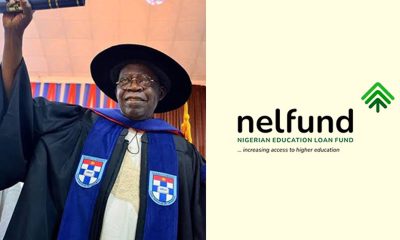
 Education3 days ago
Education3 days agoNELFUND: How schools, banks are ripping off students
-
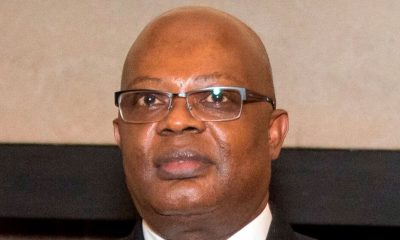
 metro2 days ago
metro2 days agoRivers administrator demands N300m refund from NBA after relocating conference
-
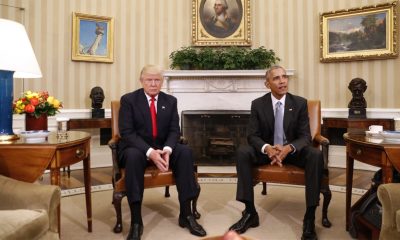
 International2 days ago
International2 days agoObama reacts as Trump freezes $2.3b Harvard University funding
-

 Politics2 days ago
Politics2 days ago2027: PDP governors reject alliance of opposition parties
-

 Insurance19 hours ago
Insurance19 hours agoLasaco Assurance Plc attains ISO/IEC 27001:2022 Certification for Information Security Management
-

 metro1 day ago
metro1 day agoBREAKING: Court strikes out defection suit against 27 pro-Wike Rivers lawmakers
-
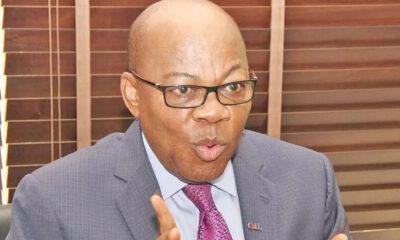
 metro1 day ago
metro1 day agoNatasha’s allegation against Akpabio has contradictions – Agbakoba





